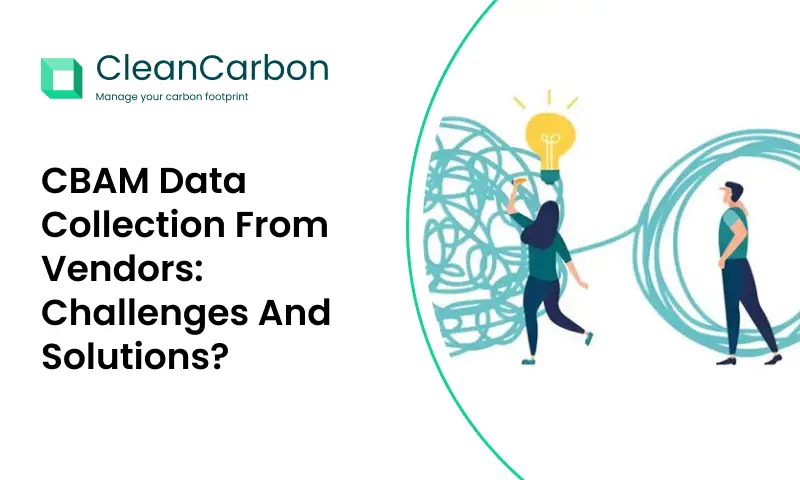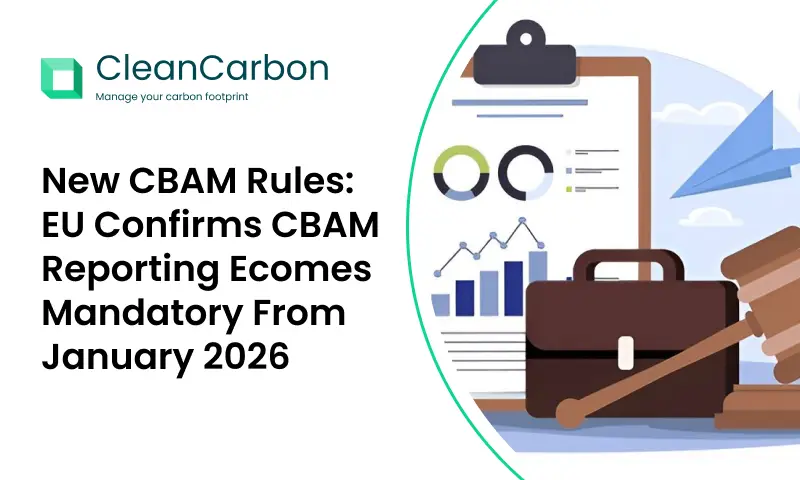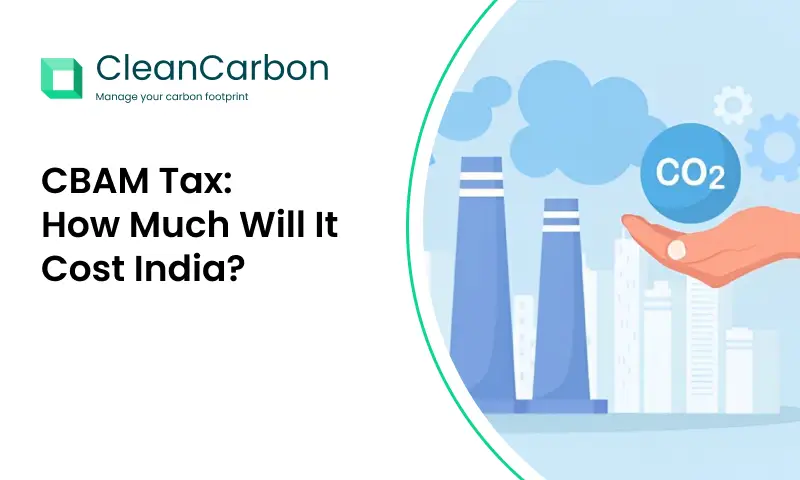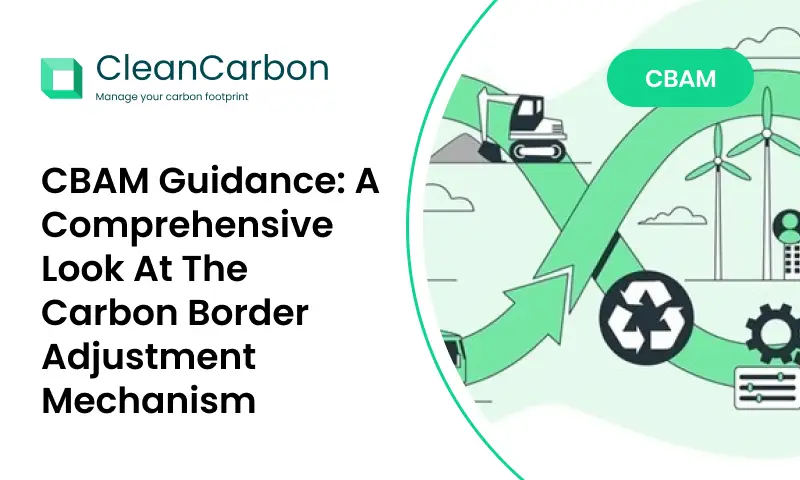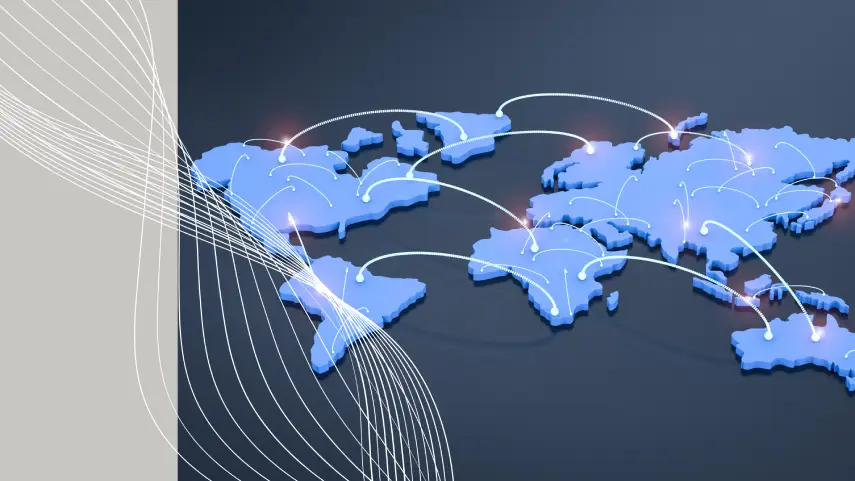Most suppliers have expressed concern at collecting embedded emissions data from local suppliers and third-party vendors to ensure accurate CBAM compliance. In this blog, we will understand the major challenges and solutions.
As CBAM is all set to enter the mandatory reporting phase from January 2026, exporters across the world are busy preparing their roadmap for accurate CBAM data collection to ensure timely compliance and minimise their CBAM tax. However, most exporters face one primary and common challenge as emerged in the last 1 year, which is data collection from vendors and third party local suppliers. In this blog, we will dissect how challenges related to third party data collection can be solved.
Reluctance to share sensitive information
Most vendors and third party suppliers that do not fall under the direct CBAM reporting purview, show reluctance in sharing data related to their products. This arises from lack of trust in the suppliers and unclear communication between both sides. Local suppliers often see energy consumption and production process related data sharing as business-sensitive information. They fear that disclosure could affect pricing negotiations or expose weaknesses.
Real life case: A steel exporter to the EU saw the accuracy of its CBAM report compromised because its vendors did not share the required data. Vendors refused to share production energy data, fearing it could reveal operational inefficiencies.
Solution: Constant communication with vendors on the importance of data and its requirement for uninterrupted trade with the EU. Maintaining a clean dataset could be a big relief to resolve this challenge.
Inadequate CBAM awareness
The primary challenge is lack of awareness about the CBAM among vendors and suppliers as they do not directly fall under the CBAM reporting category.
Case: A large section of exporters of iron and steel to the EU reportedly said most of their suppliers have never heard about the CBAM. They cited suppliers wondering why emissions disclosure was suddenly necessary for business with Europe.
Solution: There is a clear need for a credible CBAM education platform like cleancarbon.ai, which can help in understanding of the complex climate policy for effective emissions tracking and avoiding CBAM tax.
Increased CBAM tax
Many suppliers have complained of increased emissions data and consequent CBAM tax due to unreasonably high emissions data given by some suppliers. Most suppliers also used default values, which are not accurate and it could significantly increase CBAM Tax liability.
Case: Inaccurate emissions data entered by suppliers could run the risk of inflated CBAM tax from January 2026, once the CBAM enters the mandatory phase.
Solution: Maintaining accurate data record and compliance mechanism helps in accurate CBAM tax prediction to avoid it for seamless trade with the EU.
Manual and patchy data collection
In many developing countries like India, companies depend on manual methods of data collection. In most of these cases where these emission data sources are maintained notebooks, paper invoices, or basic spreadsheets, it becomes difficult to compile, verify, or digitise for CBAM reporting. For instance, an aluminium exporter highlighted that collecting monthly fuel consumption records from 40+ small vendors took weeks of follow-ups, manual data entry, and cross-verification.
Solution: Establishing a robust data collection system that can be digitised at all levels can help in faster compliances and also help maintain hygienic data.
Lack of standardised measurement practices
There is no single concrete and standard method for data collection. Even if a vendor is willing to share the relevant data, they lack uniform methodology to measure and account emissions data. For example, some use energy bills, while others give half information data or use estimates of fuel consumption.
Case: A forging unit supplying automotive parts provided its annual electricity bill as proof of carbon emissions. But under CBAM, exporters must convert this into emission factors and attribute them specifically to production processes—something the vendor had no idea about.
Solution: Suppliers must fill up a uniform form given by their customers that ask for CBAM specific data. This can streamline the process and keep the reports accurate for timely submission without delays caused due to confusion on data gathering practices.
Verification and audit concerns
Once the CBAM reporting becomes mandatory from January 2026, suppliers will have to undertake the verification and auditing processes for the data collected under the CBAM requirements. Failing to do this would mean a penalty. The EU requires data to be authentic, verifiable, and audit-ready. Even when suppliers provide data, exporters must validate it to avoid audit red flags.
Case: A fertiliser exporter discovered discrepancies when a vendor’s reported diesel use exceeded the volume purchased in invoices. Such inconsistencies, if caught by EU customs, could lead to penalties or rejection of shipments.
Solution: To avoid such a scenario, vendors and third-party suppliers must maintain their accurate audit-trail of data.
Added cost burden on vendors
Majority of suppliers are from MSMEs that have expressed concerns about increase in expenditure related to accurate CBAM compliance work. For many small suppliers, measuring and reporting carbon emissions requires investment in consultants, meters, or software—expenses they are unwilling or unable to bear.
Case: A Tier-2 vendor supplying castings to an EU-bound exporter asked for cost-sharing, arguing that setting up carbon tracking systems was beyond its budget.
Solution: Unless exporters absorb these costs or support their vendors, compliance remains patchy, and the risk of inflated CBAM Tax persists. Taking help of trusted and experienced CBAM compliance partners like Cleancarbon.ai is critical for many reasons. Cleancarbon.ai has a cost-friendly CBAM solution for all kinds of suppliers.
How to overcome data collection challenges by vendors?

There are many recurring challenges that hamper accurate data collection by suppliers on CBAM products to the EU. One of them is lack of coordination between suppliers and their third party vendors. Here are some practical ways to solve the data collection challenges:
1. Awareness & Training
The major challenge is people are still not aware about CBAM and its financial implications for their businesses. Many never heard of it until their shipment was stopped at customs or importers asked about providing a CBAM report. Conducting regular CBAM awareness training workshops and simplifying CBAM to vendors and suppliers about relevance of data and types of data needed for accurate CBAM reporting is critical. Generating trust between suppliers and vendors for uninterrupted data sharing could be a highly effective way to eliminate related challenges. Under awareness programmes, suppliers and vendors both must understand how it impacts both of them financially.
2. Third-Party Verification
Inaccurate data will mean increasing penalties for suppliers and negatively disrupt their supply chain. Keeping vendors informed about the future auditing of data they submit is significant as they will understand about the negative outcomes of not providing the accurate data. This can only be achieved with clear and constant communications. Suppliers could pay extra due to the careless attitude shown by their local vendors of raw materials. For example, if a supplier exporting to the European Union Commission submits an inflated emissions report due to increased emissions by vendors, it could mean more tax for that exporter. This means financial implication and under such a scenario, suppliers would either change the vendor or pass on the financial pressure. Hence, it is important for both to co-ordinate and ensure timely, accurate and error-free data collections and submission.
3. Standardised Templates
Suppliers and vendors must follow a uniform and standardised template for data gathering and manage the collected information. Maintaining data in a systematic way helps in minimising confusion and ensures data hygiene. Suppliers must provide vendors easy-to-use templates (digital forms) aligned with EU CBAM formats. This reduces inconsistencies and helps vendors learn standard reporting.
4. Digital Platforms
Last, but one of the most effective methods for streamlining and ensuring error-free faster CBAM compliance is digitising the entire process. Using digital methods of automated data collection and management reduces manual reliance and leaves little room for inconsistencies. It saves time, energy, money and ensures trust. Cleancarbon.ai is the only platform in India that helps in third-party data collection with the third-party suppliers and local vendors with its CBAM reporting tool. Acting as CBAM knowledge hub, cleancarbon.ai only aim is to empower CBAM compliance and sustainable change.

